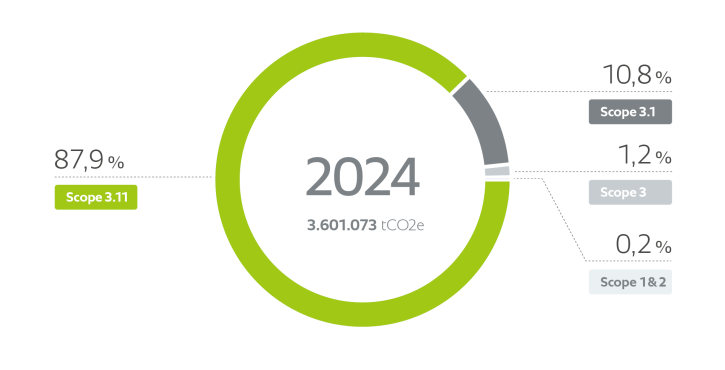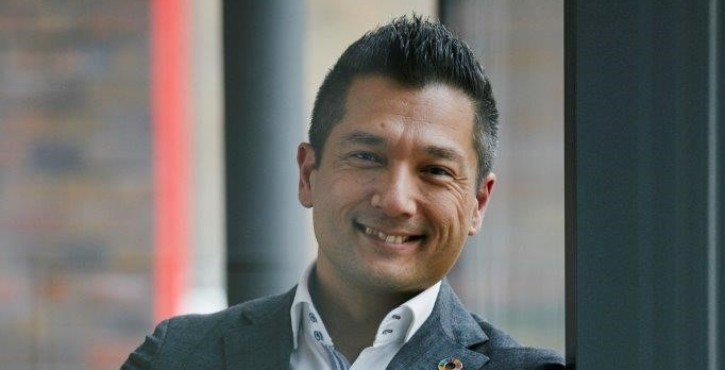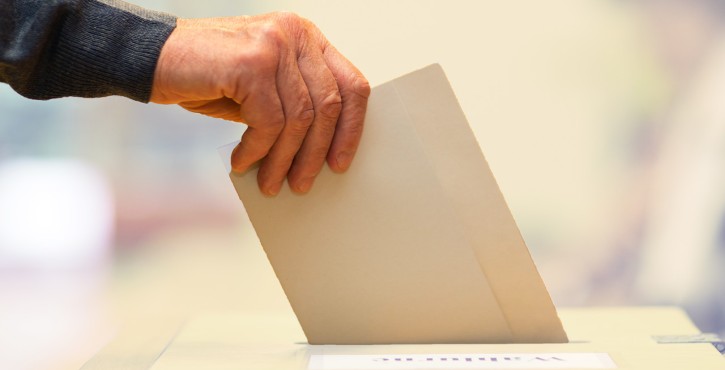Our global company carbon footprint is calculated using the principles and methodology of the Greenhouse Gas Protocol. We aim to reduce our absolute greenhouse gas emissions (Scope 1, 2 and 3) compared to the base year 2023 with the following targets.
Scope 1 and 2
We will reduce our absolute greenhouse gas emissions (CO2e) by 42% by 2030, and by 90% by 2050. The remaining 10% of emissions are covered by high quality offset projects.
Scope 3
We will reduce our absolute greenhouse gas emissions (CO2e) by 90% by 2050 compared to 2023, and cover up to 10% of the remaining emissions with high quality carbon offset projects for CO2 storage.
But that’s not enough for us. Which is why we are currently working on an interim target to reduce Scope 3 greenhouse gas emissions. The structured development of a climate strategy started at the beginning of 2024.
Interview:
Dr Peter Stadelmann.
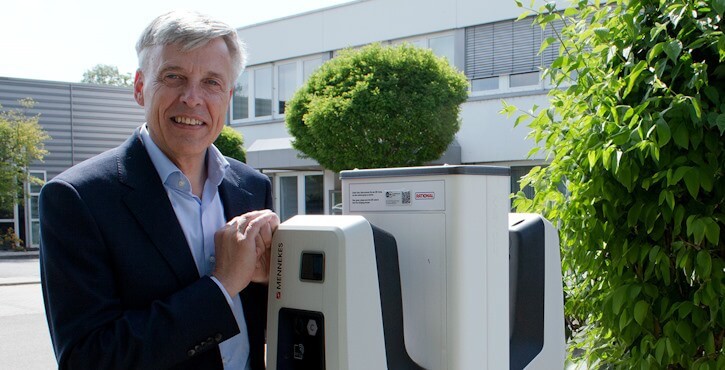
In this interview, Dr Peter Stadelmann, CEO of RATIONAL AG, explains why sustainability is on the agenda for the Executive Board at RATIONAL, why every company must assume global responsibility, and also why environmental protection, social responsibility and good corporate governance are three equally important action areas.
Action area: environment.
Protecting the climate.
We reduce our greenhouse gas emissions and offsetting unavoidable emissions. We are continually reducing our energy consumption as well as that of our cooking systems. To achieve this, we use environmentally friendly technology and infrastructure (buildings, IT), operate with the future in mind and use renewable energies.
Conserving resources.
We avoid and reduce the use of resources of all kinds in our business, our products and our value chain. We conserve resources and use them in a cycle.
Scope 1 & 2: RATIONAL’s own operations
Scope 3.11: Use of RATIONAL products we have sold
Scope 3.1: Purchased goods and services
Scope 3 (other): Other emissions in our value chain
1. Cooking systems heat food. That's why they use a lot of energy. This energy consumption makes our CCF Scope 3.11 very large. As the market leader, we at RATIONAL have always prioritised the high quality and durability of our products. We currently use a 12-year life cycle for the CCF calculation. This means that we assume the energy consumption of the cooking systems for one business over twelve years. The long service life further enhances the CCF Scope 3.11.
From an economic point of view, this long service life is positive for our customers, but from an ecological point of view, the use of older RATIONAL cooking systems is not always ideal, because they consume more energy, water or are more polluting to the environment. We are working to better understand these influences so that we can make appropriate recommendations to our customers.
Our customers improve their CO2e footprint by switching from conventional cooking appliances to RATIONAL cooking systems and using them efficiently. If they use green electricity, they reduce their CCF even more.
2. Emissions from purchased goods and services for RATIONAL cooking systems are the second largest category. Close partnerships with our suppliers are therefore important.
3. Energy consumption in our operations, such as heating and cooling, electricity, gas at our production sites and fuel for our global fleet, is allocated to Scopes 1 and 2. Although their contribution is smaller, we are continuously striving to minimise them even further.
Product Carbon Footprint.

In addition, we have calculated the product carbon footprint (PCF) of all our cooking systems. This allows us to record emissions throughout the entire product life cycle, providing transparency regarding the climate balance of our cooking systems.
We distinguish between two approaches:
- Cradle to gate: from manufacturing up to the point where it leaves the production facility
- Cradle to grave: also includes transport to the customer, use, repairs and disposal
This makes RATIONAL the first manufacturer in the industry to calculate the PCF using validated methods alongside extensive real-world data on appliance usage. This unique approach to date is based on real usage data from over 100,000 networked cooking systems. The methodology complies with international standards and has been validated by TÜV SÜD.
| Model | PCF* Cradle to gate |
PCF* Cradle to grave 1 (Global energy mix) |
PCF* Cradle to grave 2 (100% renewable energy) |
|---|---|---|---|
| iCombi Pro 6-1/1 E | 1,398 kg CO₂e | 28,290 kg CO₂e | 5,004 kg CO₂e |
| iCombi Pro 20-1/1 E | 2,634 kg CO2e | 63,894 kg CO₂e | 9,445 kg CO₂e |
| iVario Pro L | 2,448 kg CO2e | 27,340 kg CO₂e | 6,302 kg CO₂e |
| Model | iCombi Pro 6-1/1 E |
| PCF* Cradle to gate |
1,398 kg CO₂e |
| PCF* Cradle to grave 1 (Global energy mix) |
28,290 kg CO₂e |
| PCF* Cradle to grave 2 (100% renewable energy) |
5,004 kg CO₂e |
| Model | iCombi Pro 20-1/1 E |
| PCF* Cradle to gate |
2,634 kg CO2e |
| PCF* Cradle to grave 1 (Global energy mix) |
63,894 kg CO₂e |
| PCF* Cradle to grave 2 (100% renewable energy) |
9,445 kg CO₂e |
| Model | iVario Pro L |
| PCF* Cradle to gate |
2,448 kg CO2e |
| PCF* Cradle to grave 1 (Global energy mix) |
27,340 kg CO₂e |
| PCF* Cradle to grave 2 (100% renewable energy) |
6,302 kg CO₂e |
You can find further information on the PCF here (pdf, 0.22 MB) .
* Global average values for a period of use of 12 years.
** Information on other models is available on request.
Every kitchen can save resources.
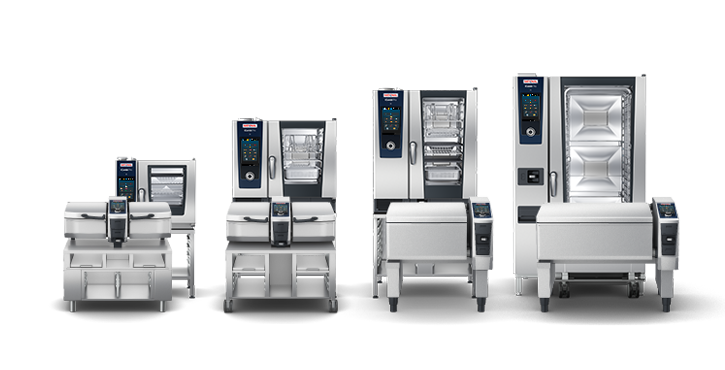
According to ENGIE Impact , almost 80% of annual energy costs in the hospitality industry are due to energy-inefficient food preparation and storage. To help restaurateurs save energy when cooking and help the environment at the same time, we design our cooking systems with resource efficiency in mind.
Social action area.
Promoting equal opportunities.
We value the diversity of people. It should be reflected in our company. With strengths that complement one another and weaknesses that balance each other out. We do not tolerate discrimination in any form. We encourage lifelong learning and development. This is something we are committed to doing with our partners and customers.
Promoting wellbeing.
1. We are dedicated to providing our customers in commercial kitchens with the best tools they need to cook. With more than 900,000 cooking systems installed, we simplify and improve everyday kitchen operations. In this way, we are helping people in catering and commercial kitchens around the world work more safely, efficiently, healthily, and with less stress.
2. We provide a healthy, safe and meaningful place to work and treat people with respect and fairness. We support the personal life planning and wellbeing of our employees in line with the company's interests.
3. We are committed to promoting healthy eating in society.
Good corporate governance action area.
Create transparency.
We provide transparency on compliance and openly communicate our policies to employees and business partners. We set ambitious, measurable goals, track them consistently and report our progress.
Strengthen partnerships.
We are committed to respecting human and labour rights throughout our value chain. Close dialogue with partners and collaborators also ensures rapid implementation of innovations.
Our sustainability key figures.
These figures are impressive.
All details and further information can be found under the following link.
